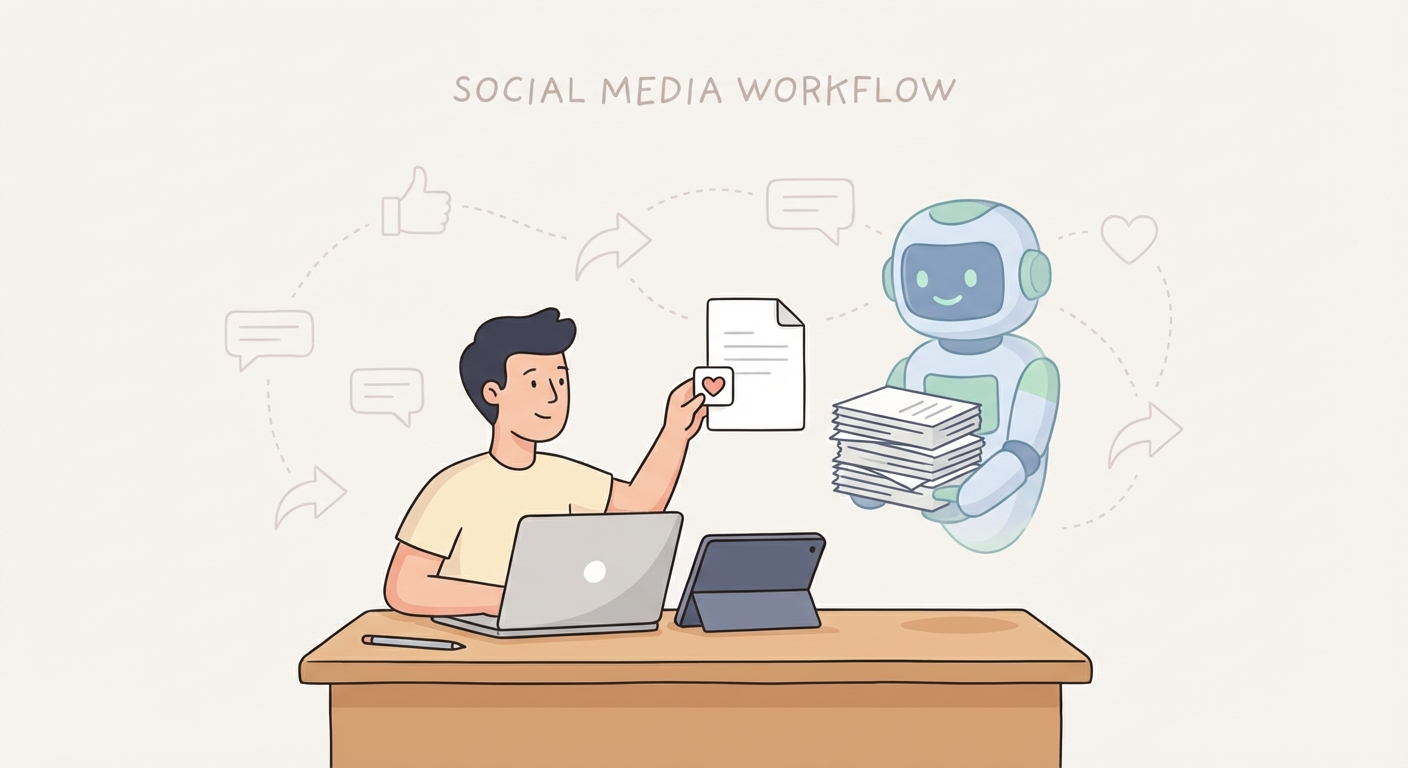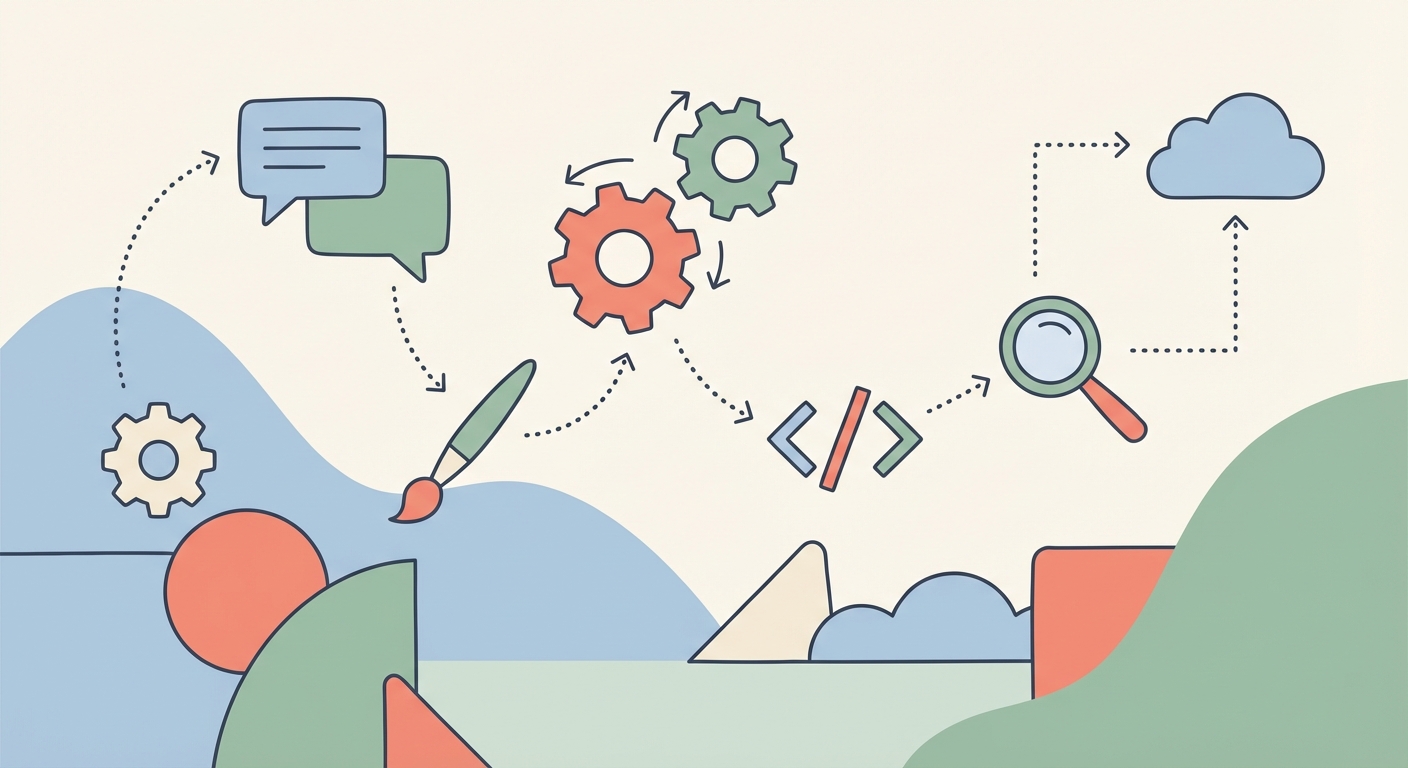Easy Ways to Write a Novel Using AI Tools
TL;DR
- This article explores how ai-powered writing tools can simplify the novel-writing process. We'll cover outlining, character development, scene creation, and editing using these tools. Discover practical strategies to overcome writer's block and boost your creativity, making novel writing more accessible and efficient for everyone.
Introduction: The AI Revolution in Novel Writing
So, you wanna write a novel, huh? But staring at a blank page is the worst, right? Well, what if i told you ai could help?
- ai writing tools are getting seriously good. They can help you brainstorm ideas, flesh out characters, and even write entire scenes. Think of it like a super-powered writing assistant, but don't expect it to do all the work!
- There's this misconception that ai will steal your creativity, but that's just not true. It's more like a collaborator. It can take care of the grunt work, freeing you up to focus on the really creative stuff, like plot twists and character development.
- ai won't replace us authors, don't you worry. (Will AI Replace Authors? An Open Letter to Worried Writers) it can assist with outlining, generating different versions of a scene, or even helping overcome writer's block. it's a tool, not a replacement.
AI is pretty cool, but it ain't perfect. It's not gonna understand the subtle nuances of human emotion or the complexities of, say, a tragic love story, you know? This is because AI lacks lived experience and consciousness; it can't truly feel heartbreak or understand the deep, often irrational, motivations behind human actions. It can process data about emotions, but it doesn't experience them.
- While ai can generate text that looks good, it often struggles with the deeper stuff. Nuanced emotions, complex themes – that's where human writers still shine.
- Human oversight is crucial. ai might give you a great first draft, but you'll still need to edit, refine, and make sure it actually sounds like you.
- And let's not forget ethics. Using ai to write a novel raises some interesting questions. Who owns the copyright? Is it okay to pass off ai-generated text as your own? These are things we need to think about.
Alright, so now that we've covered that, let's dive into how you can actually use ai to write your novel.
Step 1: AI-Powered Outlining and Storyboarding
Okay, so you're ready to ditch the blank page and get some actual ideas flowing? Good, because staring at that cursor can be soul-crushing. Let's use ai to kickstart your novel!
ai is pretty awesome for brainstorming. You can literally throw a bunch of random keywords at it and see what sticks. Think of it like this: you give the ai a prompt like "a detective who solves crimes using tarot cards in a cyberpunk city," and it'll spit out a bunch of variations, plot bunnies, and character ideas. It's not about taking everything verbatim, but about sparking your own creativity.
- Genre Exploration: Feeling stuck in one genre? Ask your ai tool to mash up genres you'd never considered. Sci-fi romance? Historical fantasy? You might stumble upon something truly unique.
- Theme Generation: Need a central theme? Input some core concepts – like "redemption," "loss," or "artificial intelligence" – and let the ai suggest different angles and sub-themes. It might even suggest something that challenges your initial assumptions.
- Refine, Refine, Refine: Don't just accept the first thing the ai gives you. Keep tweaking the prompts, playing with different combinations, and asking "what if?" questions. It's an iterative process, like sculpting clay.
Outlining is where a lot of writers get bogged down, but ai can help structure your story. Think of it like building a house. You wouldn't just start throwing bricks, right? You need a blueprint.
- Chapter Breakdown: Use ai to divide your novel into manageable chapters. Feed it your overall plot and ask it to suggest key events for each chapter.
- Plot Point Development: Stuck on a plot hole? Describe the situation to your ai and ask for possible solutions, conflicts, or twists. It can be surprisingly good at suggesting unexpected turns.
- Narrative Arc: A good story needs a strong arc. Use ai to analyze classic narrative structures (like Freytag's Pyramid) and help you map out your story's rising action, climax, and resolution. It's like having a literature professor in your pocket.
So next up? We'll look at giving your novel some visual flair – using ai for storyboarding.
Step 2: Crafting Compelling Characters with AI
Ever met a character in a book who felt totally flat? Yeah, me too. Let's make sure that never happens in your novel, okay? ai can really help you inject some life into those characters.
- Generating detailed backstories? ai's got you. You can feed it basic info – name, age, maybe a vague personality – and it'll spit out a whole history. It might suggest your character grew up on a farm, or maybe they were a child prodigy in mathematics, you know? It's all about finding those surprising details that make them feel real.
- Motivations, goals, fears... the whole shebang. This is where ai really shines. What drives your character? What are they afraid of? ai can help you explore those questions and come up with compelling answers. Like, maybe your ceo character is secretly terrified of public speaking, adding a layer of vulnerability. Similarly, when developing marketing strategies, AI can offer insights into customer behavior. For example, when developing a retail loyalty program, AI might suggest that customers' primary motivation is not just discounts, but also a sense of belonging and recognition.
- Character arcs are key, and ai can help you map them out. how does your character change over the course of the story? What challenges do they face, and how do they overcome them? ai can suggest different paths for your character to take, ensuring a satisfying and believable journey.
Dialogue is hard! But ai can help you craft realistic and engaging conversations.
- Realistic dialogue is crucial. ai can generate lines that actually sound like something a person would say. It can even tailor the dialogue to each character's personality, giving them a unique voice.
- Avoiding clichés is a must. Nobody wants to read the same old tired lines, right? ai can help you come up with fresh, original dialogue that will keep your readers hooked.
- Character consistency is super important, and ai can keep track of it all. It can monitor character traits, relationships, and development, ensuring that your characters stay true to themselves throughout the story.
So, next up, we'll look at how ai can help you with world-building!
Step 3: Writing Scenes and Chapters Using AI Assistance
Okay, so you've got your outline and characters, now comes the fun part – actually writing the thing! But, uh, sometimes that blank page is still super intimidating, right? Don't worry, ai can help you bust through that writer's block and get those scenes and chapters flowing.
- Generating Scene Descriptions with ai: Think of ai as your personal set designer. You can give it a basic prompt, like "a dimly lit alleyway in a rainy city," and it'll generate a detailed description of the setting, atmosphere, and even sensory details like the smell of wet asphalt or the sound of distant sirens. This is analogous to how AI could describe the ambiance of a virtual store, helping to create a vivid mental image for the reader.
Let's get some words on the page.
- ai can generate initial drafts of chapters, it's true. It's not gonna be perfect, but it'll give you something to work with. Think of it as a super rough first draft that you can then edit and refine to your heart's content.
- Breaking down large tasks is also a great way to use ai. Instead of trying to write an entire chapter at once, ask it to generate a few paragraphs for a specific scene. Then, you can stitch those paragraphs together and fill in the gaps.
- Overcoming writer's block is where ai really shines. Just having something – anything – on the page can be enough to get your creative juices flowing. It's like jump-starting a car, you know?
So, you've got a bunch of scenes and chapters written, but how do you make sure they all fit together?
- ai can help you identify and address plot holes or inconsistencies. It can analyze your text and point out areas where the story doesn't quite make sense, or where character actions don't align with their established motivations.
- Ensuring smooth transitions is also key. ai can suggest ways to connect scenes and chapters, making sure the story flows seamlessly from one point to the next.
- Maintaining a consistent narrative voice is super important, especially if you're using ai to generate different parts of the story. ai can analyze your writing style and help you maintain a consistent tone throughout the novel.
So, next up, we'll look at some specific tools that can help you streamline your novel writing process...
Step 4: Editing and Refining Your Novel with AI
Editing – probably the least glamorous part of writing, right? But crucial! And guess what? ai can totally help with that too.
- ai-powered grammar and style checkers are a game changer. Forget those clunky old programs. These ai tools can catch errors you'd miss, like subtle tense issues or awkward phrasing. For instance, they can detect when a past tense verb unexpectedly shifts to present tense within a narrative paragraph, something traditional checkers might overlook. Think of it like having a super-attentive editor who never gets tired, and it can help you to improve your writing skills.
- Redundancy? ai is on it! How many times have you accidentally repeated the same idea in slightly different words? ai can spot those repetitive phrases and suggest ways to streamline your text. For example, if you are writing a blog post about "the benefits of exercise", ai can help you to identify and remove repetitive phrases or ideas, such as "exercise is good for you" or "exercise is beneficial".
- Consistency is key, especially in a long novel. ai can help you maintain a consistent writing style, tone, and voice throughout the entire book. It's like having a style guide built right into your writing tool, which is pretty sweet!
Okay, so ai can't really replace human beta readers, but it can give you a surprisingly helpful first pass.
- ai can analyze your novel for pacing issues. Is the beginning too slow? Does the climax fall flat? ai can flag those areas and suggest ways to improve the flow of the story.
- Plot holes beware! ai can help you identify inconsistencies in your plot, character motivations, or world-building. It's like having a super-logical reader who catches every little detail.
- Feedback reports? Yes, please! Some ai tools can even generate detailed feedback reports, highlighting areas for improvement and suggesting specific revisions.
So, what's next? Well, we're gonna look at some tools that can seriously streamline this whole ai-assisted novel-writing process.
Conclusion: Embracing AI as a Creative Partner
So, you've made it this far – novel almost done, right? It's kinda wild how ai can actually help you write a book, isn't it? But like, what's next for ai and writing?
- The future is collaboration: Think of ai less as a replacement and more as a co-author. It can handle the tedious stuff, freeing you up to focus on the creative heart of the story. Imagine ai helping with world-building for a fantasy novel, generating maps and histories based on your initial ideas! This might involve AI analyzing existing lore and suggesting plausible geographical features or historical timelines, or even generating visual representations of maps based on textual descriptions.
- Experimentation is key: Don't be afraid to play around with different ai tools and techniques. See what works for you and your style. There's no one-size-fits-all approach. Maybe you find ai is great for dialogue but not so much for plot.
- Human touch matters: ai can generate text, but you bring the emotions, experiences, and unique perspective that make a story truly special. It's about finding that balance.
Don't be scared; embrace the future, and keep writing!




